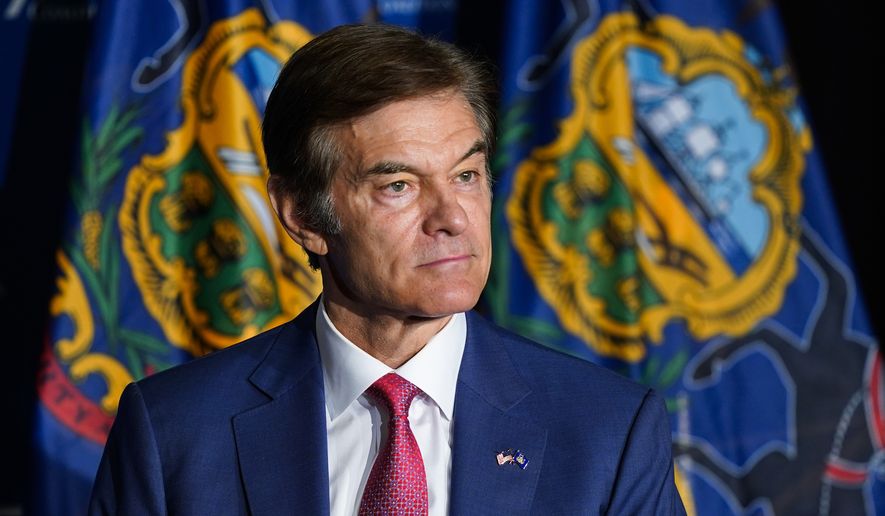OPINION:
The inability or unwillingness of the Republican Party over the last few years to clarify its intentions with respect to policy has, rightly, damaged the party’s chances to take control of the federal legislative branch in this election cycle. This failure has led to a number of pathologies, the most immediate of which is the creation of the vacuum that has allowed both former President Donald Trump to loiter in everyone’s head and voters to forget (hopefully temporarily) how truly inept and disastrous Team Biden has been.
If you are an elected official nowadays and not talking about issues or achievements, you are invariably responding to the trivia of the day; or, worse, trailing along in the wake of the former president, or, even worse, responding to whatever nonsense the Democrats want to talk about.
The absence of policies and ideas also opens the door for the other side to define and identify their opponents. We’ve seen that this cycle as the vacuum created by congressional Republicans’ aversion to alerting voters about what they intend to do if given partial control of government has allowed the Democrats to define the Republicans and, consequently, now match them in voter enthusiasm.
A focus on policy is also essential to wave elections, in large measure because it helps to frame individual campaigns as part of a national narrative. That especially helps weaker candidates. If Mehmet Oz had some material policies to talk about, he would likely be talking about them instead of raw vegetables or getting drawn into Twitter conversations about how many houses he owns.
Similarly, Herschel Walker would at least have a fighting chance of speaking in public without damaging himself. Candidates like Blake Masters in Arizona and J.D. Vance in Ohio would be able to talk at some length about nationally important issues and policies rather than riff on their general theories about the world.
In short, an emphasis on policy helps keep candidates away from trouble.
The other thing that policy ideas do is acknowledge that work remains to be done. We have not heard much about the border wall in this campaign, despite the fact that the southern border has essentially vanished under Team Biden. Nor have we heard much about the Obamacare subsidies to the wealthy, despite the fact that they were the main impetus behind the disastrous, economically destructive reconciliation. Nor has there been much talk about defunding Planned Parenthood.
Republican candidates have been acting as if the last time they were given the majority they left no element of the agenda undone. Everyone knows that to be inaccurate, and current candidates’ failure to acknowledge previous failures does not instill confidence among voters that previous errors will be corrected.
An emphasis on policies and proposals also strengthens confidence in representative government and is healthy for the republic and its citizens. When voters are told what the candidates are going to try to do if elected, they are better able to decide between candidates. Even if the choice in question is simply framed as avoiding the disastrous policies of the incumbent, at least there is clarity. Such emphasis helps everyone stay focused on the actual purposes of government — advancing the long-term interests of the nation and its citizens — and helps avoid campaigns devolving into candidate self-aggrandizement and ego-gratification.
Campaigns are always about something — the incumbent, the mood of the country, the disastrous economy, whatever. Talking about policies is smart because it helps keep voters focused on material (rather than trivial or cosmetic) differences. It keeps the conversation focused on those topics your side would rather talk about (for the Republicans, that would have to be the economy, inflation, energy prices and the disaster in Afghanistan). By denying them room to maneuver, it precludes your opponents from shifting to topics more favorable to them.
Despite all this, the Republican party, with fewer than 80 days remaining in this cycle, has failed to produce any sort of policy documents or indication of what sorts of things they may attempt to do if given the majority in the House or Senate. That should not come as surprise, given that this same party failed to produce a platform during the presidential election cycle of 2020.
That’s a very serious problem, one that can’t be explained and should not be ignored.




Please read our comment policy before commenting.